As a dog owner, you cherish every moment with your furry friend. But just like humans, dogs can encounter respiratory problems that require attention and care. Understanding these issues can help you provide the best possible care for your beloved companion. In this comprehensive guide, we’ll delve into common respiratory problems in dogs, their causes, symptoms, treatment options, and preventive measures.
Contents Overview
Respiratory problems in dogs can pose significant challenges to their health and well-being, but understanding the nuances of these issues can empower pet owners to provide the best care possible for their furry companions. From the notorious “kennel cough” to more severe conditions like chronic obstructive pulmonary disease (COPD), respiratory ailments can manifest in various forms, often presenting with symptoms such as persistent coughing, labored breathing, and nasal discharge. These problems can stem from infections, allergens, anatomical abnormalities, environmental factors, or even physical trauma. Brachycephalic breeds, with their adorable squished faces, are particularly prone to respiratory difficulties due to their narrowed airways. However, with timely veterinary intervention, lifestyle adjustments, and preventive measures such as vaccination and environmental management, many respiratory issues in dogs can be effectively managed or even prevented altogether. By staying attuned to their pet’s respiratory health and partnering closely with their veterinarian, dog owners can ensure that their four-legged friends breathe easy and live life to the fullest.
Common Respiratory Problems in Dogs
As a dog owner, keeping your furry friend healthy and happy is a top priority. However, just like humans, dogs can experience respiratory problems that can impact their well-being.
1. Kennel Cough (Infectious Tracheobronchitis):
Kennel cough is a highly contagious respiratory infection that is commonly seen in dogs. It is often spread in places with high dog density, such as kennels, shelters, and dog parks. Symptoms of kennel cough include a persistent cough, nasal discharge, and sometimes a mild fever. While it can resolve on its own in mild cases, more severe cases may require veterinary treatment, including antibiotics to prevent secondary infections.
2- Canine Influenza:
Similar to the flu in humans, canine influenza is caused by influenza viruses (H3N8 and H3N2) and can affect dogs of all ages. Symptoms of canine influenza include coughing, sneezing, nasal discharge, fever, and lethargy. In some cases, canine influenza can progress to pneumonia, especially in young puppies or dogs with weakened immune systems. Treatment may include supportive care, such as fluids and rest, as well as antiviral medications in severe cases.
3- Brachycephalic Airway Syndrome:
Brachycephalic breeds, such as Bulldogs, Pugs, and Boxers, are prone to a condition known as brachycephalic airway syndrome. This condition is characterized by narrowed airways, which can lead to breathing difficulties, especially during exercise or in hot weather. Symptoms of brachycephalic airway syndrome include noisy breathing, snoring, exercise intolerance, and even collapse. Treatment may involve lifestyle modifications, such as avoiding strenuous exercise and keeping the dog in a cool environment, as well as surgical correction of anatomical abnormalities.
4- Chronic Obstructive Pulmonary Disease (COPD):
Chronic obstructive pulmonary disease (COPD), also known as chronic bronchitis or asthma, is a common respiratory condition in dogs. It is characterized by inflammation of the airways, which can lead to coughing, wheezing, and difficulty breathing. COPD can be triggered by allergens, such as pollen, dust, and cigarette smoke, as well as environmental factors like pollution and extreme temperatures. Treatment may include bronchodilators, corticosteroids, and environmental management to reduce exposure to triggers.
Causes of Respiratory Problems
Respiratory problems in dogs can arise from various causes, ranging from infections to anatomical abnormalities. Understanding these underlying factors is crucial for accurate diagnosis and effective treatment. Below are some common causes of respiratory problems in dogs:
1- Infections:
Bacterial Infections: Pathogens such as Bordetella bronchiseptica can cause conditions like kennel cough, leading to inflammation of the upper respiratory tract.
Viral Infections: Canine influenza viruses (H3N8 and H3N2) and canine distemper virus can infect the respiratory system, causing symptoms ranging from mild coughing to severe pneumonia.
Fungal Infections: Fungi like Aspergillus spp. and Blastomyces dermatitidis can infect the respiratory tract, particularly in dogs with compromised immune systems or those living in endemic areas.
2- Allergens:
Environmental Allergens: Pollen, dust mites, mold spores, and other environmental allergens can trigger allergic reactions in susceptible dogs, leading to respiratory symptoms like coughing, sneezing, and wheezing.
Food Allergens: Some dogs may develop respiratory issues as part of a broader allergic response to certain ingredients in their diet.
3- Anatomical Factors:
Brachycephalic Airway Syndrome: Breeds with flat faces, such as Bulldogs, Pugs, and Boston Terriers, are predisposed to anatomical abnormalities that can obstruct the airways, leading to respiratory distress.
Tracheal Collapse: Weakness or malformation of the tracheal cartilage can cause the trachea to collapse, impeding airflow and causing coughing and difficulty breathing, especially during exercise or excitement.
Elongated Soft Palate: Dogs with elongated soft palates, often seen in brachycephalic breeds, may experience breathing difficulties due to obstruction of the airway passage.
4- Environmental Factors:
Pollution: Exposure to air pollutants such as cigarette smoke, vehicle emissions, and industrial chemicals can irritate the respiratory tract and exacerbate existing respiratory conditions.
Extreme Temperatures: Both extreme heat and cold can stress the respiratory system, particularly in dogs with pre-existing respiratory issues or those with short muzzles.
5- Physical Trauma:
Injuries: Trauma to the chest or head, such as blunt force trauma or foreign body ingestion, can cause respiratory distress, pneumothorax (collapsed lung), or other serious complications.
Chemical Irritants: Ingestion or inhalation of toxic substances, including household cleaners, pesticides, and certain plants, can damage the respiratory tract and cause respiratory distress.
Identifying the underlying cause of respiratory problems in dogs is essential for appropriate treatment and management. If you notice any signs of respiratory distress in your dog, such as coughing, wheezing, or difficulty breathing, it’s important to seek veterinary attention promptly for an accurate diagnosis and treatment plan tailored to your pet’s specific needs.
Symptoms of Respiratory Problems
Recognizing the symptoms of respiratory problems in dogs is crucial for early detection and prompt intervention. Here are some common signs that may indicate respiratory issues in your canine companion:
- Coughing:
- Persistent or frequent coughing, which may be dry or productive (with mucus or blood).
- Coughing worsens during activity or excitement.
- Labored Breathing:
- Rapid, shallow breathing or increased effort to breathe.
- Visible abdominal movement with each breath.
- Noisy or raspy breathing sounds, such as wheezing or crackling.
- Nasal Discharge:
- Clear, yellow, green, or bloody discharge from the nose.
- Sneezing or sniffling, particularly if accompanied by nasal congestion.
- Respiratory Distress:
- Open-mouth breathing or panting excessively, even when at rest.
- Flaring nostrils and exaggerated chest movements.
- Difficulty catching breath or gasping for air.
- Bluish Gums or Tongue:
- Cyanosis, characterized by a bluish tint to the gums, tongue, or skin, indicating oxygen deprivation.
- Seek immediate veterinary attention if you notice cyanosis in your dog.
- Exercise Intolerance:
- Reluctance to engage in physical activity or exercise.
- Tiring easily during walks, play, or other activities.
- Changes in Behavior or Appetite:
- Lethargy or decreased activity levels.
- Loss of appetite or reluctance to eat or drink.
- Restlessness or discomfort, especially when lying down.
- Other Signs:
- Frequent sneezing or reverse sneezing (inward snorting sound).
- Gagging or retching, which may indicate irritation or obstruction in the throat.
- Unexplained weight loss or reduced body condition.
Remember
Some respiratory problems, such as kennel cough or mild allergies, may cause mild symptoms that resolve on their own. However, if your dog experiences persistent or severe respiratory symptoms, it’s essential to seek veterinary care promptly. Respiratory issues can range from minor infections to life-threatening conditions, so early diagnosis and appropriate treatment are crucial for your dog’s health and well-being. If in doubt, always consult with your veterinarian for personalized advice and guidance.
Treatment Options
Treating respiratory problems in dogs often requires a combination of medical intervention, supportive care, and lifestyle modifications. The specific treatment approach will depend on the underlying cause and severity of the condition. Here are some common treatment options for respiratory problems in dogs:
- Medications:
- Antibiotics: Prescribed to treat bacterial infections, such as kennel cough or pneumonia.
- Antiviral Drugs: Used to manage viral respiratory infections, such as canine influenza.
- Bronchodilators: Help to dilate the airways and improve breathing in conditions like chronic obstructive pulmonary disease (COPD).
- Corticosteroids: Reduce inflammation in the airways and alleviate symptoms of asthma or allergic reactions.
- Oxygen Therapy:
- Supplemental Oxygen: Administered via a mask, nasal cannula, or oxygen cage to improve oxygenation in cases of severe respiratory distress or hypoxemia (low blood oxygen levels).
- Hyperbaric Oxygen Therapy: Used in some veterinary clinics to deliver high-pressure oxygen, promoting tissue healing and reducing inflammation.
- Nebulization:
- Nebulized Medications: Inhalation therapy that delivers medication directly to the airways, often used to manage respiratory conditions like bronchitis or pneumonia.
- Surgery:
- Soft Palate Trimming: Surgical correction of elongated soft palate in brachycephalic breeds to improve airflow and reduce respiratory obstruction.
- Nares Widening: Widening of narrowed nostrils (stenotic nares) to alleviate breathing difficulties in brachycephalic dogs.
- Tracheal Stenting: Placement of a stent to support a collapsing trachea and maintain airway patency.
- Supportive Care:
- Fluid Therapy: Intravenous fluids may be administered to maintain hydration and support dogs with severe respiratory distress or pneumonia.
- Humidification: Increasing humidity in the environment can help soothe irritated airways and facilitate mucus clearance in dogs with respiratory infections.
- Environmental Management:
- Avoidance of Triggers: Identify and minimize exposure to respiratory irritants such as cigarette smoke, dust, pollen, and air pollution.
- Temperature Control: Provide a comfortable indoor environment and avoid exposing dogs to extreme temperatures that can exacerbate respiratory symptoms.
- Lifestyle Modifications:
- Weight Management: Maintaining a healthy weight reduces the risk of respiratory problems, especially in brachycephalic breeds prone to obesity-related airway issues.
- Exercise Regulation: Avoid strenuous exercise in hot or humid weather and monitor dogs closely for signs of respiratory distress during physical activity.
- Nutritional Support:
- Balanced Diet: Provide a nutritionally complete diet tailored to your dog’s age, breed, and health status to support overall immune function and respiratory health.
Remember
Treatment should be tailored to the individual needs of each dog, and veterinary guidance is essential for proper diagnosis and management of respiratory problems. Always consult with your veterinarian to develop a comprehensive treatment plan that addresses your dog’s specific condition and medical history. Early intervention and diligent care can significantly improve the outcome for dogs with respiratory issues, enhancing their quality of life and well-being.
Preventive Measures
Preventing respiratory problems in dogs involves a combination of proactive measures aimed at reducing exposure to risk factors and promoting overall respiratory health. Here are some preventive measures to help keep your canine companion’s respiratory system healthy:
- Vaccination:
- Ensure your dog is up-to-date on vaccinations, including those for canine distemper, canine influenza, and Bordetella bronchiseptica (kennel cough), especially if they frequent areas with high dog density like boarding facilities or dog parks.
- Regular Veterinary Check-ups:
- Schedule routine wellness exams with your veterinarian to monitor your dog’s overall health and catch any potential respiratory issues early. Discuss any concerns about your dog’s breathing or coughing during these visits.
- Environmental Management:
- Minimize exposure to respiratory irritants such as cigarette smoke, household cleaners, aerosol sprays, and strong odors.
- Keep indoor living spaces clean and well-ventilated to reduce dust, mold, and other allergens that can trigger respiratory problems.
- Use air purifiers or humidifiers to maintain optimal indoor air quality and humidity levels, especially in households with dogs prone to respiratory issues.
- Allergy Management:
- Identify and manage your dog’s allergies by avoiding known triggers whenever possible.
- Consult with your veterinarian about allergy testing and potential allergy medications or immunotherapy (allergy shots) to help control allergic respiratory symptoms.
- Weight Management:
- Maintain your dog at a healthy weight through a balanced diet and regular exercise to reduce the risk of obesity-related respiratory issues, especially in brachycephalic breeds.
- Exercise Regulation:
- Avoid strenuous exercise during extreme weather conditions, particularly in hot and humid environments, which can exacerbate respiratory distress in dogs.
- Monitor your dog closely for signs of overheating or respiratory distress during physical activity, and provide plenty of rest and water breaks as needed.
- Dental Care:
- Maintain good oral hygiene by regularly brushing your dog’s teeth and providing dental chews or treats to help prevent periodontal disease, which can contribute to respiratory infections.
- Parasite Control:
- Use year-round parasite prevention measures to protect your dog from heartworm disease, lungworms, and other parasites that can affect the respiratory system.
- Breed-Specific Considerations:
- Be aware of breed-specific predispositions to respiratory issues, especially in brachycephalic breeds like Bulldogs, Pugs, and Boston Terriers. Take appropriate precautions and seek veterinary guidance for breed-specific respiratory care.
- Stress Reduction:
- Minimize stressors that can weaken your dog’s immune system and predispose them to respiratory infections. Provide a calm and stable environment with plenty of mental and physical enrichment.
By implementing these preventive measures and staying vigilant for any changes in your dog’s respiratory health, you can help reduce the risk of respiratory problems and promote a lifetime of healthy breathing for your beloved canine companion. If you have any concerns about your dog’s respiratory health or need personalized advice, consult with your veterinarian for guidance tailored to your dog’s specific needs and circumstances.
Bottom Line
Respiratory problems in dogs can significantly impact their quality of life. By being vigilant about symptoms, seeking prompt veterinary care, and implementing preventive measures, you can help your furry friend breathe easier and enjoy a happier, healthier life. Remember, a little attention to their respiratory health today can lead to many more joyful years together tomorrow.
Key Takeaways
- Awareness is Key: Understanding common respiratory problems in dogs, including their causes, symptoms, and preventive measures, is essential for proactive healthcare and early intervention.
- Watch for Symptoms: Recognize signs of respiratory distress in your dog, such as coughing, labored breathing, nasal discharge, and bluish gums. Prompt veterinary attention is crucial for proper diagnosis and treatment.
- Seek Veterinary Care: If you suspect your dog is experiencing respiratory issues, consult with your veterinarian for an accurate diagnosis and personalized treatment plan tailored to your dog’s specific needs.
- Preventive Measures Matter: Take proactive steps to prevent respiratory problems by vaccinating your dog, maintaining regular veterinary check-ups, managing allergies, controlling weight, and minimizing exposure to respiratory irritants.
- Lifestyle Adjustments: Modify your dog’s environment and lifestyle to reduce stress, provide a clean and well-ventilated living space, regulate exercise to avoid overexertion in extreme weather, and promote dental health to prevent respiratory infections.
- Breed-Specific Considerations: Be mindful of breed-specific predispositions to respiratory issues, especially in brachycephalic breeds, and take appropriate precautions to safeguard their respiratory health.
- Early Intervention is Key: Timely intervention and proactive management of respiratory problems can significantly improve your dog’s quality of life and overall well-being.
- Consult with Your Veterinarian: Always consult with your veterinarian for personalized advice, guidance, and treatment options tailored to your dog’s individual needs and circumstances.
By staying informed, vigilant, and proactive, you can help ensure your dog maintains optimal respiratory health and enjoys a happy, healthy life by your side.

Ryan Farmer, DVM, is a veterinarian based in Houston, Texas. He earned his Doctor of Veterinary Medicine from the University of Missouri-Columbia and is the owner of EaDo Veterinary Clinic.


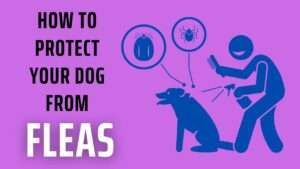










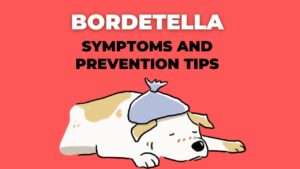

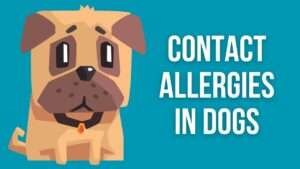

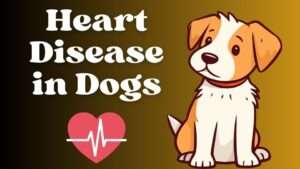
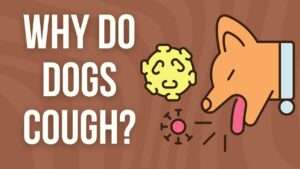

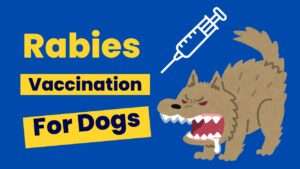
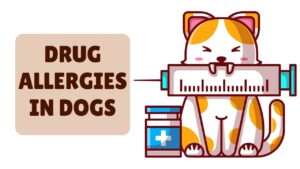
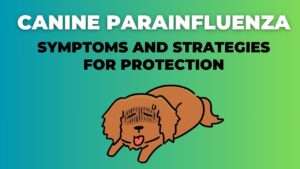
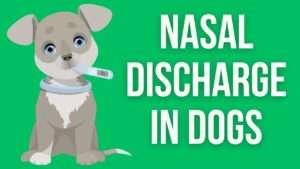
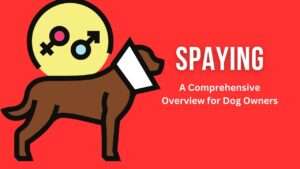
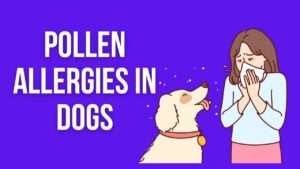







+ There are no comments
Add yours